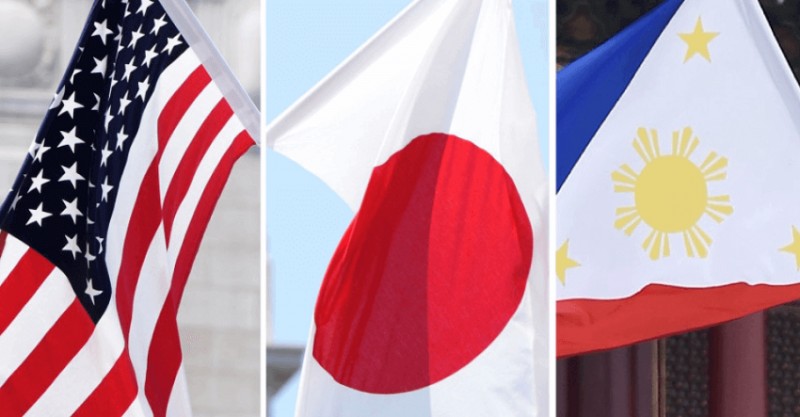
Leaders from Japan and the Philippines are preparing for a significant meeting in Washington, aiming to strengthen their defense cooperation. This comes after recent joint military exercises in the South China Sea involving the US, Japan, the Philippines, and Australia, which drew criticism from Beijing. The discussions are expected to cover various aspects, including enhancing military command structures between the US and Japan, conducting joint coast guard patrols, ensuring access to crucial resources, and addressing concerns about North Korea's actions. The primary goal of these talks is to bolster security in the Indo-Pacific region and promote a free and open environment.
One of the anticipated outcomes could be a substantial upgrade of military command structures between the United States and Japan, alongside joint coast guard patrols involving Manila in disputed areas with China.
Securing access to vital resources such as semiconductors and rare metals, addressing North Korea's growing belligerence, and discussing the Japanese acquisition of US Steel, which faces opposition from President Joe Biden, are also on the agenda.
The White House stated that the talks will "advance a trilateral partnership built on deep historical ties of friendship, robust and growing economic relations... and a shared vision for a free and open Indo-Pacific."
Before departing Tokyo, Japanese Prime Minister Fumio Kishida emphasized the strength of the Japan-US relationship, calling it "more ironclad than ever." He expressed his intention to demonstrate this message to the world during his trip.
China's foreign ministry expressed opposition to the formation of exclusive groups and confrontations in the region, highlighting its concerns regarding the trilateral summit.
The visit holds significant symbolic value as Kishida is set to receive full honors at the White House, including a gala dinner and a news conference in the Rose Garden. He will also address both houses of Congress, marking the first such instance for a Japanese premier since Shinzo Abe in 2015. The summit will involve discussions between Kishida, Philippine President Ferdinand Marcos, and President Biden, representing the first trilateral summit among the three countries.
President Biden and President Marcos, who is perceived as being closer to Washington compared to his predecessor, Rodrigo Duterte, will also engage in separate discussions. This follows Biden's hosting of other Asia-Pacific allies, including South Korean President Yoon Suk Yeol, at Camp David in August.
Efforts to manage tensions with China have been evident, with Biden holding recent phone conversations and face-to-face meetings with President Xi Jinping.
Japan's evolving stance on defense, including plans to increase military spending, procure US Tomahawk missiles, relax restrictions on weapon exports, and establish a joint operations command for its Self-Defense Forces, has drawn attention. Japan is also providing support to regional countries and is in talks with the Philippines regarding possible troop deployments.
Media reports suggest that Biden and Kishida may agree on significant upgrades to US-Japan command and control structures, aiming to enhance military agility, particularly in response to potential crises like a Chinese invasion of Taiwan.
The joint exercises conducted by the US, Japan, the Philippines, and Australia in the South China Sea on Sunday have further highlighted regional security concerns. China's response, organizing joint naval and air combat patrols in the same area, underscores the ongoing tensions.
However, a potential hurdle in the summit discussions is Biden's opposition to Nippon Steel's proposed acquisition of US Steel. Kishida's visit to Japanese-owned factories in North Carolina seeks to alleviate concerns regarding this deal.
The talks also take place amid speculation about Donald Trump's return to the White House after the upcoming US elections, raising uncertainties about potential shifts in US foreign policy.
Japan Breaks Pacifist Tradition: Approves Sale of Fighter Jets to Foreign Nations
Estonia Urged to Double Defense Spending Amid Russian Threats